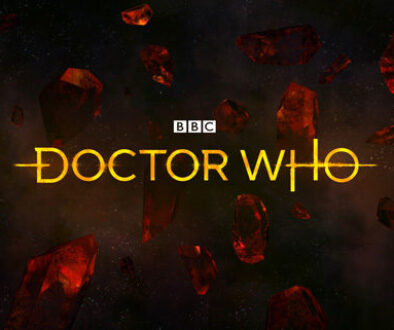The Woman Who Fell to Earth Review – “Hey, Chibnall, your TORCHWOOD is showing!”
Clint Hassell gives his verdict on the Doctor Who Series 11 opener.
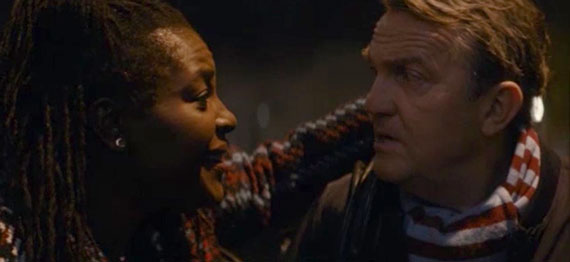
Note: this review contains full SPOILERS for episode 1 of Series 11.
“All of this is new, and new can be scary. Stick with me and you may get some answers,” the Doctor states in “The Woman Who Fell to Earth,” as Doctor Who returns from a year’s absence with a completely new cast, production crew, writing staff, and composer. With even familiar elements like the show’s logo, the TARDIS, and the sonic screwdriver receiving an update, new showrunner Chris Chibnall’s script revisits the idea of the Doctor’s regeneration, which serves as not-so-subtle metaphor for the similarly regenerated series as a whole.
From the moment she crashes through the roof of the hijacked train, Jodie Whittaker’s Thirteenth Doctor feels genuine. She is quick to subdue (but pointedly not kill) the alien; is diplomatic, using humor to defuse the tension; pragmatic, as she points out that the alien could already have killed the passengers had it wanted to; and unquestionably considers herself in control – – typical “Doctor,” no? The regeneration madness, the quirky physical humor, a pun on the word “Doctor” – – throughout the episode, emphasis is placed on echoes of the series’ past, providing consistency and clarity. Beyond the bits of scripted continuity, Whittaker is careful to pepper her portrayal of the Doctor with references to previous lead actors David Tennant, Matt Smith, and Peter Capaldi.
Note that, until new companion Yasmin points out the obvious, Thirteen has completely forgotten that she is, in fact, female. There is a difference between the character of the Doctor being portrayed by a woman, and the Doctor being written as a woman – – the former denoting a change in sex, the latter a change in gender. While the change in the Doctor’s sex is readily apparent, with perky Jodie Whittaker looking decidedly more female than Peter Capaldi, the Doctor’s personality remains unchanged. By focusing on the consistency of the Doctor’s character through regeneration, the episode seemingly confirms that Time Lords do not experience separate genders. This makes a lot of sense, as beings who potentially change sex multiple times over their life span would probably have a fairly fluid sense of gender – – rather than “masculine” or “feminine,” they are more, well . . . “Gallifreyan.” (Yes, River Song certainly seems “feminine,” but she was not raised within Gallifrey’s culture.)
However, “The Woman Who Fell to Earth” does not trap Whittaker in a static role, parroting previous Doctor’s catchphrases. That the episode dedicates a montage to the Doctor building herself a new sonic screwdriver Swiss Army knife – – that her new sonic is a product of her own ingenuity and not merely an aspect of a redesigned TARDIS – – paints Thirteen as incredibly capable. (Though, if Amy Pond can build a sonic device, anyone could.)
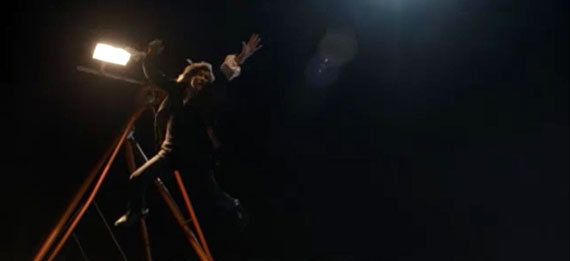
Despite the real-world attention on Whittaker’s casting as the first-ever female Doctor, “The Woman Who Fell to Earth” isn’t really about the Doctor. Rather, the episode proffers the most in-depth character study of the companion role since Adam Mitchell joined the TARDIS in Series 1. In the episode’s most poignant scene, occurring directly after the disappearance of the alien gathering coil from the disabled train, the Doctor practically interviews Yasmin, as if searching for traits befitting a companion. Is she observant? Is her mind open to the vast possibilities of the universe? Does she trust herself and her own judgments? Can she think of a plan? Is she really looking for “something a bit different,” or is she too caught up in following the strict protocol she is learning as a police officer?
In contrast, Karl “[doesn’t] want answers,” and is a great example of why not everyone makes a great companion. Adam Mitchell’s brief tenure aboard the TARDIS was a vital part of the Series 1 narrative, because it highlighted why the Doctor would chose to travel with Rose, a sales clerk with daddy issues, or Jack, a time-displaced con man. By standing in comparison to the two, Adam highlighted why Rose and Jack made excellent companions. Here, Karl contrasts to Yasmin, Ryan, and the O’Briens.
Karl lacks the confidence necessary to travel with the Doctor. Meanwhile, Yasmin yearns “to do more,” and wants something to “test” her. When the train screeches to a halt, Grace is the first to venture forward and investigate. A curious Ryan touches the glowing alien glyphs – – which the Doctor herself admits she would have done – – and questions why the transport pod was moved to the warehouse, and how anyone even knew about its location. Ryan is resourceful enough to look online for instructions on how to operate a crane. Yasmin is open-minded, proclaiming “every day’s a learning day.”
Most importantly, while the Doctor is confronting “Tim Shaw” atop the crane, the episode pointedly cuts away from her blustering speech to show the O’Briens taking initiative and preparing to further help. Grace and Graham trust the Doctor, but they aren’t content to let her do all of the work. Grace especially realizes that there are stakes that matter, and she is willing to do more than her part. In a pivotal moment, Grace returns to Graham, kisses him, and asks, “Is it wrong to be enjoying this?” to which Graham replies, “Yes!” This scene recalls previous companions Amy and Rory, who similarly struggled to choose between adventures in time and space, and domestic bliss.
And, just like Amy and Rory, Grace’s time with the Doctor is cut unexpectedly short. Thus, the cruel twist of the episode: the titular “woman who fell to Earth” isn’t the Doctor, as expected, but Grace. The “greatest woman [Ryan’s] ever met” is his grandmother, who fell from the crane’s scaffolding while electrocuting the alien gathering coil. “She died like she lived, trying to help other people.”
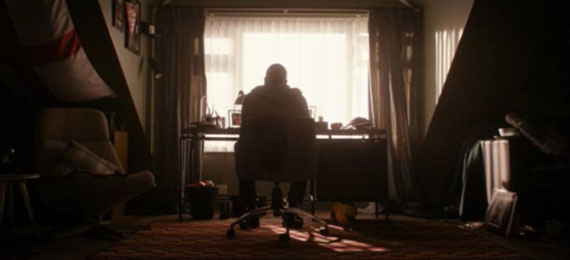
However, despite the thorough character study, the actual characterization of the new companions lacks consistency. Why is Ryan still so openly caustic about Grace’s relationship with Graham? This level of malice seems heavy-handed for a three-year-old marriage. More remarkably, Graham and Ryan do not seem to grieve Grace’s death to an expected degree, nor do either direct any anger towards the Doctor, who seemingly brought a wave of alien danger and death down upon them when she crashed through the roof of their train. Surely, seeing the Doctor reminds them of all that they have lost. Why are they so accepting of her continued presence? Ryan takes the Doctor shopping and Graham is helping her find the TARDIS, seemingly hours after Grace’s funeral!
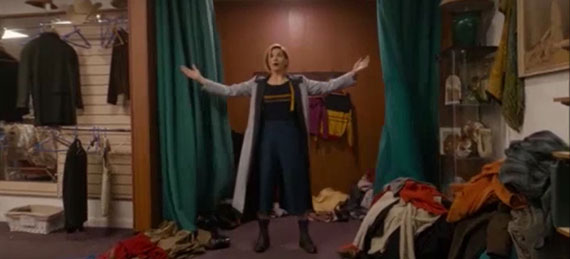
Also, despite its emphasis on “echoing” Who’s recent history and its rich examination of the characteristics of a companion, “The Woman Who Fell to Earth” feels less like a modern episode of Doctor Who, and more like a classic episode of Chris Chibnall’s Torchwood. This is largely due to new composer Segun Akinola’s dark, pulsating, electronic score, which is less adventurous and more foreboding than previous composer Murray Gold’s orchestral fare. Combined with gorgeous aerial footage of Sheffield – – reminiscent of Torchwood’s establishing shots of Cardiff – – the episode’s urban, nighttime setting gives “The Woman Who Fell to Earth” a Torchwood vibe, a sentiment echoed within the narrative as Yasmin’s dispatcher states, “It’s the night time in Sheffield. Everything’s out of the ordinary.” This comparison is not a criticism. Early Torchwood was keen, a common theme being that mankind could be as alien and evil as any threat from the stars. As head writer, Chibnall scripted some of its darkest, most insightful episodes, including “Cyberwoman,” “Countrycide,” “Adrift,” “Fragments,” and “Exit Wounds.” Bringing this sense of menace to his era of Doctor Who could be both what matures the series and defines Chibnall’s tenure as showrunner.
Random Musings
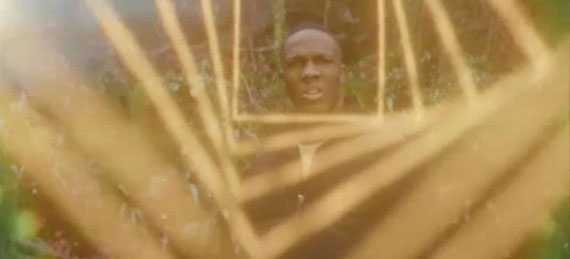
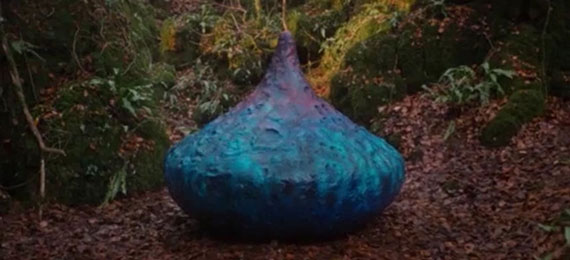
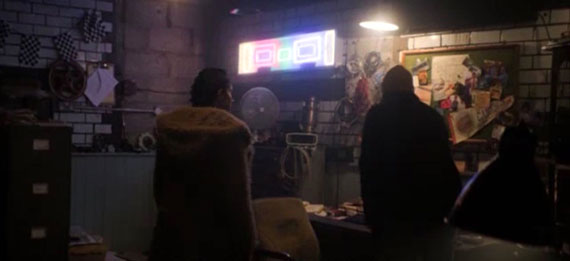
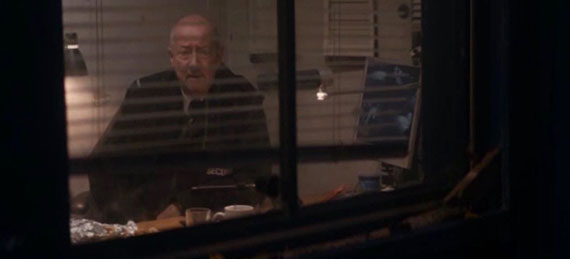
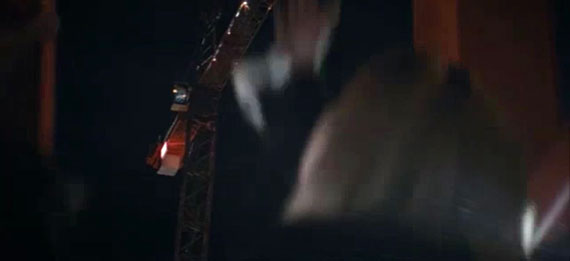
(Time) Capsule Review
By focusing less on the newly-regenerated Doctor, and more on the characteristics that make for effective companions, “The Woman Who Fell to Earth” not only sidesteps the real-world issue of Jodie Whittaker’s casting as the first female Doctor, it offers some of the program’s best character study since Series 1. While Whittaker is winsome in her portrayal of the Doctor – – with many commanding and funny mannerisms pulled from previous incarnations of the character – – she is most effective in the scene where the Doctor builds herself a new sonic device. Despite the episode’s many efforts to echo the past, the new cinematography and score feel more like classic Torchwood than modern Who.





